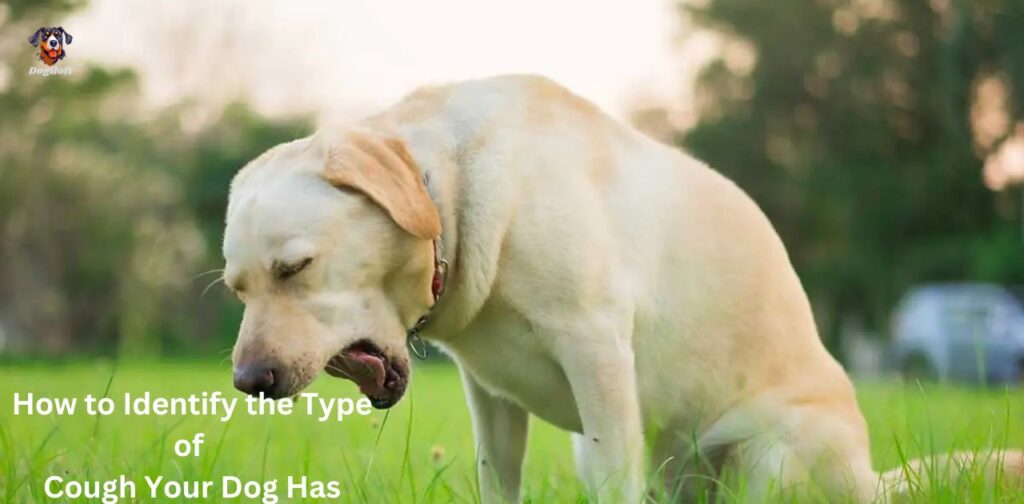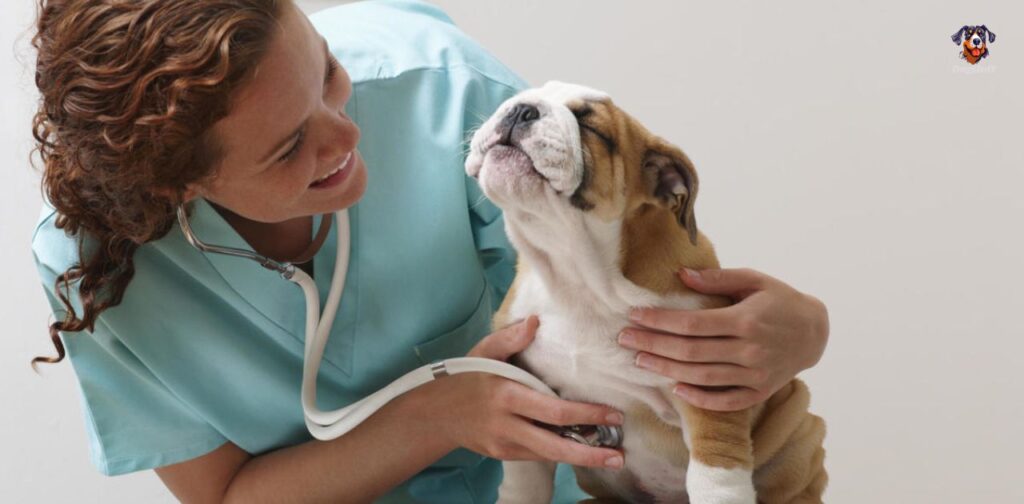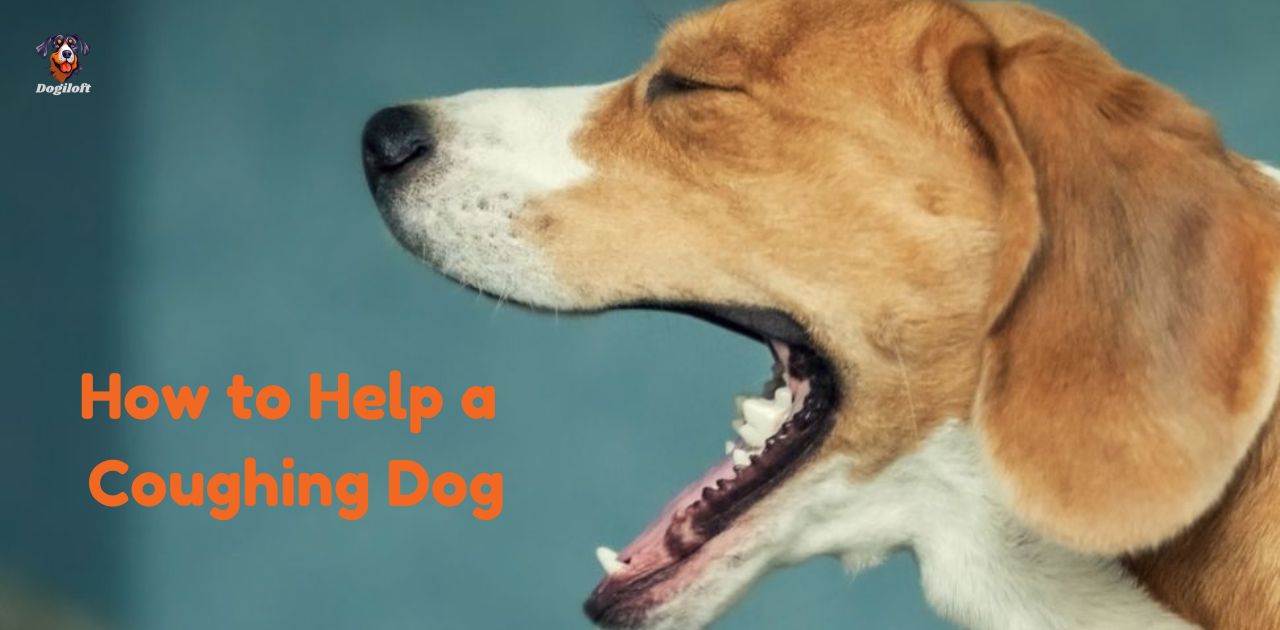Dogs can be vocal animals, often expressing themselves with barks, whines, and yes, sometimes coughs. But when a dog’s cough becomes frequent or intense, it’s a sign that something might not be right. While some causes of coughing in dogs are mild and can be managed at home, others could be more serious and need veterinary attention.
This guide provides a comprehensive look at why dogs cough, how to identify different types of coughs, safe at-home care tips, and when it’s time to see the vet. Whether you’re a new dog owner or an experienced one, this post will help you understand how to help a coughing dog in the safest and most effective way.
Why Is My Dog Coughing? Common Causes of Coughing in Dogs
Understanding Why Dogs Cough
Just like people, dogs can cough for various reasons. Coughing is a natural reflex, a way for the body to clear irritants or mucus from the respiratory tract. However, a dog’s cough can range from mild and temporary to chronic and severe. Understanding the underlying causes of coughing in dogs is essential, as each type requires different care. Let’s take a look at the most common causes.
1. Respiratory Infections: Kennel Cough, Canine Flu
Respiratory infections, particularly Kennel Cough and Canine Influenza, are among the most frequent causes of coughing in dogs.
- Kennel Cough: Often described as a “dry, honking” cough, kennel cough is highly contagious among dogs. Dogs are more likely to catch it in environments like boarding facilities or dog parks. Other symptoms include sneezing, a runny nose, and mild fever.
- Canine Influenza: This infection is similar to the flu in humans, causing a wet cough, nasal discharge, and even lethargy. Canine flu is more common in areas where dogs interact closely.
Both of these infections are generally treatable but need careful management to avoid spreading.
2. Allergies and Environmental Irritants
Many dogs are sensitive to allergens like pollen, dust, mold, and smoke. Environmental irritants can trigger coughing along with other symptoms like itchy skin, watery eyes, and nasal discharge. Dogs exposed to secondhand smoke are especially prone to respiratory issues, and it’s wise to minimize their exposure to known allergens.
Tips to Manage Allergies:
- Keep your dog’s living area clean and free of dust.
- Use an air purifier to reduce airborne allergens.
- Wash your dog’s bedding regularly to prevent dust mites.
3. Heart Conditions and Coughing
Coughing in dogs can sometimes be related to heart disease, particularly in older dogs or breeds prone to heart issues, like Cavalier King Charles Spaniels and Doberman Pinschers. When the heart struggles to pump effectively, fluid can accumulate in the lungs, leading to a persistent cough. Other signs include weakness, rapid breathing, and even fainting.
4. Tracheal Collapse
A collapsing trachea is a common issue in small dog breeds, like Chihuahuas and Pomeranians, where the tracheal cartilage weakens and collapses. This leads to a distinctive “honking” cough, which worsens during excitement or exercise. Tracheal collapse can’t be cured, but lifestyle adjustments and medications can help manage symptoms.
5. Other Causes of Coughing
Less common but important causes of coughing in dogs include:
- Parasites (like heartworms or lungworms)
- Fungal Infections
- Foreign Objects: Dogs sometimes inhale small objects, causing sudden coughing fits.
Understanding the different causes of coughing can help you make more informed decisions about your dog’s care.Meet America’s Top 10 Veterinary Professionals and Vote for Your Favorites!
How to Identify the Type of Cough Your Dog Has

Recognizing Different Types of Coughing in Dogs
Identifying the type of cough your dog has is essential for understanding its cause. A wet, phlegmy cough is usually different from a dry, honking cough, and each suggests a unique underlying condition. Here’s how to distinguish between the most common types.
| Type of Cough | Description | Possible Cause |
|---|---|---|
| Dry Cough | Harsh, hacking cough | Kennel cough, allergies |
| Wet Cough | Moist, phlegmy sound | Canine flu, heart disease |
| Honking Cough | Goose-like honking | Tracheal collapse |
| Gagging or Hacking Cough | Deep, hacking cough with gagging | Irritants, infections |
Dry Cough vs. Wet Cough
A dry cough often sounds like a sharp bark and may point to issues like kennel cough or tracheal collapse. On the other hand, a wet cough sounds more phlegmy and is commonly associated with respiratory infections or heart problems.
When to Record Your Dog’s Cough for the Vet
Recording a video of your dog’s cough can be incredibly helpful for your veterinarian. Capturing the sound and duration of the cough will provide the vet with more information to accurately diagnose the issue.
At-Home Remedies and Support for a Coughing Dog
If your dog’s cough is mild and your veterinarian has ruled out any serious conditions, there are several safe, at-home remedies to help soothe your dog’s cough and keep them comfortable.
1. Ensure Hydration
Keeping your dog hydrated helps soothe a dry throat and can alleviate some coughing. Make sure fresh water is always available.
2. Using a Humidifier
Dry air can irritate a dog’s respiratory system, especially in winter. Adding moisture to the air with a humidifier helps relieve dryness, making it easier for your dog to breathe comfortably.
3. Avoiding Known Irritants (Smoke, Dust)
Removing irritants from your dog’s environment can significantly reduce their coughing. Common irritants include:
- Cigarette smoke
- Cleaning chemicals
- Dust and pollen
4. Natural Cough Remedies (Use Caution)
Some pet owners use natural remedies like honey to soothe a dog’s throat. Small amounts of honey can work as a mild cough suppressant, but always consult with your vet to ensure it’s safe for your dog’s condition. Herbal teas, like chamomile, can also be beneficial, but should be used sparingly and only with vet approval. can dogs eat bananas?
Case Study: “Bella, a 6-year-old Cocker Spaniel, had a dry cough that wouldn’t go away. After visiting the vet, her owners used a humidifier and added honey to her diet with vet approval. Within a week, Bella’s cough improved, showing how small changes can make a big difference.”
When to Take Your Dog to the Vet for Coughing

Some situations require veterinary attention to ensure your dog’s health and safety. Knowing when to visit the vet can be life-saving.
Persistent Coughing That Doesn’t Improve
If your dog has been coughing for more than a week without improvement, it’s time to schedule a vet visit. Persistent coughing can indicate conditions that worsen over time.
Signs of Emergency or Severe Symptoms
Seek immediate veterinary help if your dog shows any of the following:
- Difficulty breathing
- Blue or pale gums (indicating lack of oxygen)
- Extreme fatigue
- High fever
Coughing in Puppies, Senior Dogs, or Dogs with Known Health Issues
Young puppies, senior dogs, or dogs with preexisting health conditions are at higher risk and should be examined sooner if they develop a cough.
What to Expect at the Vet: Possible Tests and Examinations
Your vet may use several tests to diagnose the cause of your dog’s cough. These can include:
- X-rays to view the chest and lungs
- Blood tests to detect infections or parasites
- Heartworm tests to check for heartworms
- Bronchoscopy in complex cases, where a tiny camera is used to examine the airways
Preventing Coughing in Dogs: Tips for Long-Term Health
How to Help Prevent Coughing in Dogs
Preventive care can reduce the chances of coughing episodes and keep your dog in overall good health. Here are some tips:
1. Regular Vet Visits and Vaccinations
Keeping up with annual vet visits and vaccinations, such as for kennel cough and canine influenza, can help prevent respiratory infections. Vaccinations are especially important if your dog frequents places with other animals.
2. Managing Allergies and Environmental Triggers
Consider adding air purifiers to your home, especially if you live in a high-pollen area. Regularly cleaning your dog’s bed and living areas can help reduce allergens that cause respiratory issues.
3. Proper Exercise and Weight Management
Obesity can put added pressure on your dog’s respiratory system. Regular, moderate exercise and a healthy diet can keep your dog’s lungs strong and minimize coughing risks.
4. Monitoring Breathing and Coughing Patterns Regularly
Periodic checks on your dog’s breathing and cough sounds can help catch problems early. Early detection often leads to easier treatment and a quicker recovery.
Conclusion
Helping a coughing dog requires a blend of observation, patience, and appropriate action. By understanding the causes of coughing, recognizing the type of cough, trying safe at-home remedies, and knowing when to seek professional help, you can ensure your dog’s comfort and health. Keep a close eye on your dog’s behavior and don’t hesitate to consult your vet if you’re concerned. A well-cared-for dog is a happy dog, and even a simple act of care can make a big difference in your pet’s life.








